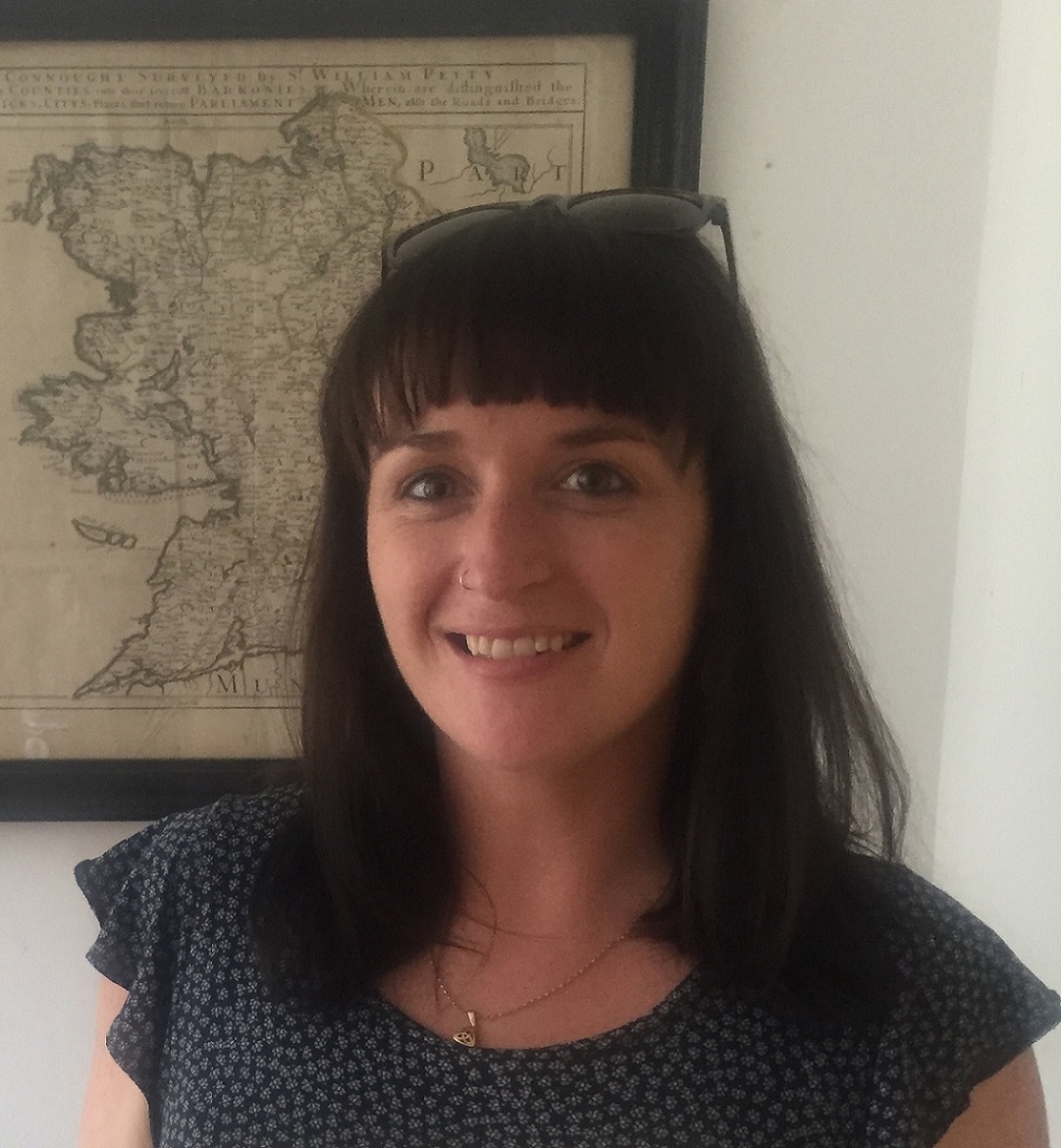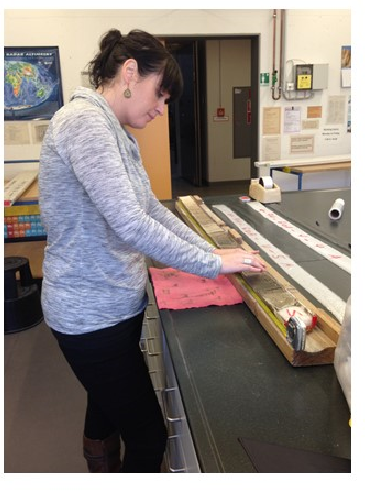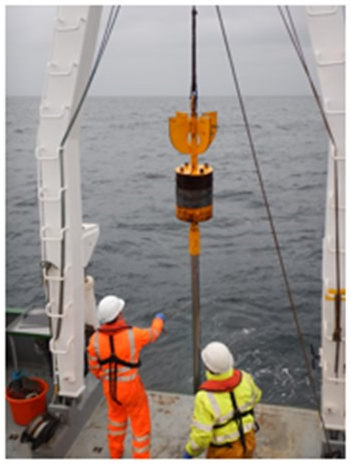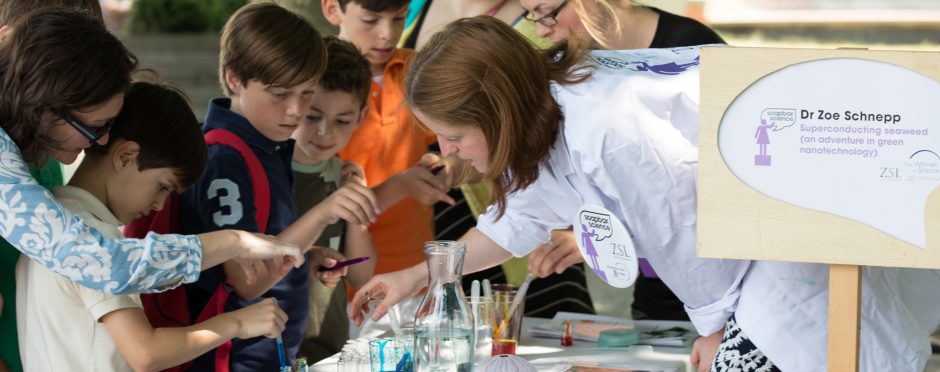 Michelle Curran (@PalaeoShel), NUI Galway, is taking part in Soapbox Science Galway on 29th June 2019 with the talk: “How past climate can help prepare us for the future”
Michelle Curran (@PalaeoShel), NUI Galway, is taking part in Soapbox Science Galway on 29th June 2019 with the talk: “How past climate can help prepare us for the future”
Lessons from the past: how past climate can help us prepare for the future
By Michelle Curran
My research interest is in the climate of the past during periods when the world was warmer than today. This is important so that we can improve future climate change predictions. So we have all heard of global warming but does it really affect us here in Ireland? Well, as the climate system is interconnected, changes in one region can affect the weather and climate in other regions and since the 1970s the Arctic has warmed about twice as fast as the rest of the world leading to a large reduction in sea-ice within the region. Obviously this is a serious concern for the Arctic itself, but how is this related to our climate here in Ireland?
 Research has shown that increased warming in the Arctic has been linked to extreme weather events such as heat waves, intense storms and cold snaps, in the northern mid-latitudes, where Ireland is located. However, there are large uncertainties associated with future climate change predictions and this is simply because we don’t know how the climate operates under very warm conditions due to our short instrumental records. And this is where my research comes in. We know there were warmer periods in the past, as a result of natural climate variability, i.e. not caused by humans. By examining ocean-atmosphere circulation during these periods my research will help us understand how a warmer Arctic may impact our climate here in Ireland. My research uses ocean sediment cores and from these I extract microscopic shells, called foraminifera. These are preserved physical characteristics of the past that can stand in for direct measurements. Foraminifera live in the sea and build their shells by incorporating elements from the surrounding water. By testing the ratio of elements within the shell we can tell how warm the oceans were in the past and then make inferences about atmospheric circulation.
Research has shown that increased warming in the Arctic has been linked to extreme weather events such as heat waves, intense storms and cold snaps, in the northern mid-latitudes, where Ireland is located. However, there are large uncertainties associated with future climate change predictions and this is simply because we don’t know how the climate operates under very warm conditions due to our short instrumental records. And this is where my research comes in. We know there were warmer periods in the past, as a result of natural climate variability, i.e. not caused by humans. By examining ocean-atmosphere circulation during these periods my research will help us understand how a warmer Arctic may impact our climate here in Ireland. My research uses ocean sediment cores and from these I extract microscopic shells, called foraminifera. These are preserved physical characteristics of the past that can stand in for direct measurements. Foraminifera live in the sea and build their shells by incorporating elements from the surrounding water. By testing the ratio of elements within the shell we can tell how warm the oceans were in the past and then make inferences about atmospheric circulation.
 Considering current climate change predictions it is vital we better understand how the climate system operates under warmer conditions in order to adapt to future extreme weather, as these events are likely to become more frequent and perhaps even our “normal” climate state. This is particularly relevant in light of the extreme weather experienced in recent times, such as ex-hurricane Ophelia in October 2017, the flooding events of January 2018, the blizzard-like conditions from the “Beast from the East” in March 2018 and the heat waves experienced in summer 2018. Such weather extremes highlight the need to understand and prepare for these weather events so we can make informed decisions on climate related policies, as more extreme weather will have serious economic and societal impacts in Ireland. Therefore, to make informed decisions it is important to understand how the climate system works during times when it was warmer than today.
Considering current climate change predictions it is vital we better understand how the climate system operates under warmer conditions in order to adapt to future extreme weather, as these events are likely to become more frequent and perhaps even our “normal” climate state. This is particularly relevant in light of the extreme weather experienced in recent times, such as ex-hurricane Ophelia in October 2017, the flooding events of January 2018, the blizzard-like conditions from the “Beast from the East” in March 2018 and the heat waves experienced in summer 2018. Such weather extremes highlight the need to understand and prepare for these weather events so we can make informed decisions on climate related policies, as more extreme weather will have serious economic and societal impacts in Ireland. Therefore, to make informed decisions it is important to understand how the climate system works during times when it was warmer than today.
